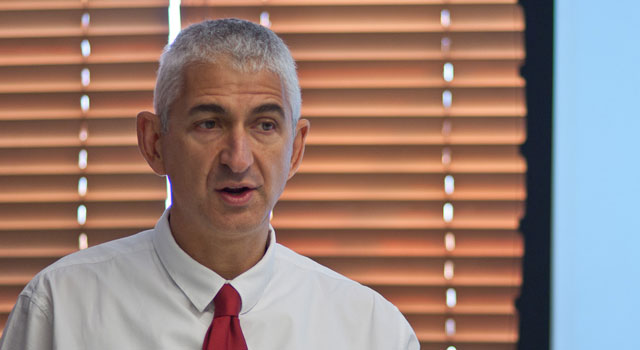 Imagine your phone popping up an alert whenever your blood pressure is elevated, or if your blood-glucose level is problematic. Imagine receiving a warning about an impending major health issue like a heart attack and being told to get to an emergency room as quickly as possible.
Imagine your phone popping up an alert whenever your blood pressure is elevated, or if your blood-glucose level is problematic. Imagine receiving a warning about an impending major health issue like a heart attack and being told to get to an emergency room as quickly as possible.
Sound far-fetched? It’s not. The next five to 10 years look set to usher in dramatic changes in the way we measure — and think about — our personal health.
The world is on the cusp of big changes in the broader healthcare industry that will change the way that people manage their health and the way that doctors and other service providers advise and interact with their patients.
As technology giants such as Apple and Google race to reinvent their smartphone platforms as personal health companions, and as the industry moves to electronic systems, healthcare is going to be transformed.
That’s the view of one of South Africa’s top minds on the subject, Discovery Health CEO Dr Jonathan Broomberg, who says the industry is at the early stages of fundamental change. There are several factors that will drive these changes in the coming years, he says.
Fitness trackers such as Jawbone’s UP and the Fitbit, which use accelerometers (motion sensors) to monitor users’ steps and even their sleep patterns, are early examples of the kinds of sensors we’ll wear in future to track our health.
Although activity trackers are already helping people change their habits, such devices represent only the start of how companies will use tiny sensors to help people monitor their health, Broomberg says. He points to the partnership, announced last week, between Google and Novartis to develop smart contact lenses that will eventually be able to read wearers’ blood-sugar levels – ideal for diabetics who today have to prick a finger on a regular basis.
Broomberg says that in future people will routinely wear sensors that monitor the heart’s electrical activity, blood pressure, oxygen saturation, even brainwaves. It will empower people to take control of their health in ways not previously thought possible. “It will put people right at the centre of healthcare, rather than simply being passive recipients of advice and treatments.”
While consumer technology will change the way people monitor their own health, big changes are also looming in the back office. Broomberg says the healthcare industry has fallen behind other industries in employing advanced IT systems to improve efficiencies and service levels, with many doctors still keeping paper records. These records are typically not shared, meaning if a patient is admitted to a hospital after visiting their GP, no record of the results of their doctors visit is immediately available to the hospital.

This is changing, with governments in some countries providing financial incentives to medical practices that implement electronic health records. Discovery Health is attempting something similar in South Africa with its HealthID platform for doctors, which provides detailed information about members’ health records, but there’s a need for interoperability of systems between medical scheme administrators if fragmentation is to be avoided.
Another concern, of course, is privacy. Providing data to our medical scheme administrator is one thing, but should we entrust our personal medical information to a company like Google that makes most of its money from selling targeted advertising based on what it knows about us?
Certainly, any digital storage of patient data has to guarantee watertight security and privacy, and selling people’s personal medical data to third parties is a big no-no, says Broomberg. The challenge, he says, is ensuring privacy while not hindering the benefits that electronic tools and records could bring to people prepared to share their data.
If managed correctly, though, the technological changes sweeping through healthcare should have a huge beneficial impact on people’s lives. Broomberg believes that in future every part of the healthcare system will be digital and that patients will be monitored and tracked much more regularly outside of hospitals and doctors’ offices. They will receive medical interventions that are much more fine-tuned, too.
In short, people will become much more central in owning and managing their health.
- Duncan McLeod is editor of TechCentral. Find him on Twitter
- This column was first published in the Sunday Times




